Today, we’re here to talk about the ten best Consent Management Platform (CMP) and why publishers should pay attention to them.
As we enter an era of increased data regulation and consumer awareness, businesses must take data privacy seriously. GDPR and CCPA laws require organizations to obtain explicit user consent for data collection and processing.
That is where consent management platforms come in – they provide a way to track and manage user consent and provide users a way to manage their preferences and control the use of their data.
Stats and Facts Related to Consent Management Platform (CMP) in 2023 & Beyond
The global consent management market size was valued at $318.3 million in 2020, and is projected to reach $2,271.1 million by 2030, registering a CAGR of 21.9% from 2021 to 2030. (Source: Allied Market Research)
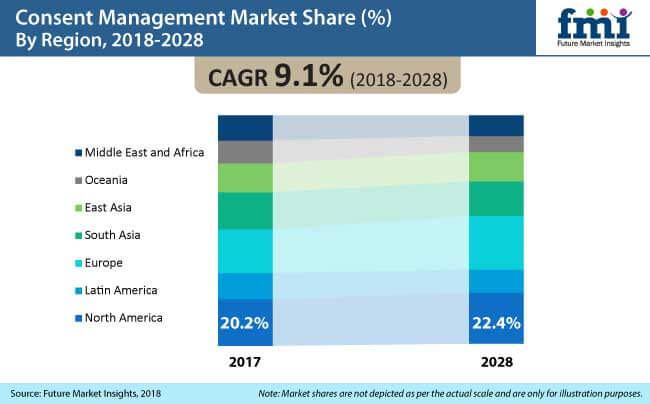
European region has the highest percentage of investment in consent management platform providers.
Also, according to a recent news, the Digital Advertising Alliance (“DAA”) announced the creation of the CMP Complement, that will offer privacy controls on sites and apps through Consent Management Platforms (CMPs) and the AdChoices program.
(Source: DAA.org)
The “CMP Complement” offers the following features:
- Allows brands and publishers to work with participating CMPs to direct consumers to a dedicated module or user flow within the CMP that focuses on relevant advertising;
- Allows consumers to use the AdChoices Icon through participating CMPs;
- Promotes transparency to consumers by providing more information, disclosures and choices; and
- Allows consumers to use the AdChoices Icon to access a CMP’s console and the DAA’s information and choices about relevant ads.
In this post, we’ll look at what CMPs are, how they work, frequently asked questions, and the best CMPs in the market right now.
Also Read: How to Improve Consent Rate for Publishers
Definition of Consent Management Platform
Consent management platform (CMP) is a type of application that helps collect and handle personal information in a GDPR compliant way.
It allow publishers to gain insight into the personal data lifecycle from the moment of opt-in to the opt-out, allowing to track, monitor, and respond to the data subject’s request and consent preferences. Most CMPs operate on IAB’s transparency and consent framework.
Let’s talk about what user consent means in this context.
- Whenever a user interacts with your website, data about the user is collected both actively (pop-ups, sign up widgets, lead generation forms) and passively (by using cookies). Some of this data may contain Personally Identifying Information (PII) such as name, address, phone number, etc.
- Without privacy laws and regulations, the companies that collect user data cannot be held accountable, can freely share data with third-parties, and also claim limited or no liability in case of a data breach.
Regulations such as GDPR are aimed at protecting the privacy of internet users by giving them the power to manage their consent.
- In the post-GDPR world, when a user visits a new website, the website has to seek and record active consent on what data is being collected, who it is being shared with (analytics services, ad networks, social plugins, payment processors), and how long it will be stored for.
Meaning, consent is something that needs to be actively managed. Most publishers don’t have the technical wherewithal and systems to methodically record and manage user consent, and that’s what CMPs help them do by providing the necessary tools, consultation, and framework.
Read More: All About IAB’s Transparency and Consent Framework 2.0
How Does a Consent Management Platform Work?
A consent management platform should support the the entire lifecycle of a website user starting from recording their consent to handling their data access requests.
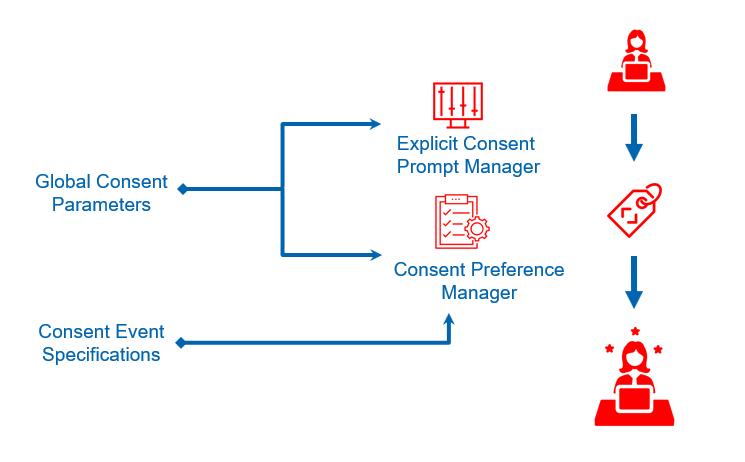
Here are three distinct functional parts that all good CMPs must cover.
1. Collection of User Consent
At the first interaction, the user must be informed that the website collects data and then given a choice to either opt in or opt out. A detailed account of how the information will be processed must be provided in the privacy policy.
As for recording the consent, the GDPR does not define any specific tools, but the industry-standard implementation generally includes a pop-up box.
2. Recordkeeping of Consent
fter collecting the consent, the next step is to record it. Most CMPs provide an admin panel where the website owner can review the database of recorded consent. Since websites are liable to be audited for compliance under GDPR, CMPs have to ensure that this database is maintained in a format specified within the regulation, including details like:
- Who gave consent (email, cookie, device ID)
- When was the consent given (timestamp)
- What the user consented to (list of specific purposes for using personal data)
- Whether, and when, the consent was withdrawn or changed
3. Processing User Requests
Consent is not permanent under GDPR and users may withdraw their consent at any time. Users should have access to tools that enable them to rectify or erase their data and / or change their consent settings.
Under right to access data, all the data collected on a user must be supplied in a structured, commonly used and machine-readable format on request.
Also Check: GDPR Compliance Checklist: The Non-Legalese Edition for Publishers
Criteria for Evaluation: Choosing the Best Consent Management Platforms?
Let’s get down to the nitty-gritty. How did we determine the top 10 consent management platforms for 2023?
We evaluated each platform based on a set of criteria that included the following factors:
Ease of Use
A consent management platform should be easy to use and implement for businesses and end-users. We looked for venues that were intuitive, customizable, and offered user-friendly interfaces.
Integration with Other Tools
A consent management platform should be able to integrate with other tools and platforms seamlessly. We evaluated how well each platform integrated with various website builders, CMSs, marketing automation tools, and other software.
Pricing
We know that cost is always a consideration for businesses, so we evaluated the pricing models of each platform. We looked for platforms that offered flexible pricing plans and didn’t have any hidden fees.
Customer Support
When it comes to data privacy, having strong customer support is crucial. We evaluated each platform’s customer support services and looked for those that offered live chat, phone, and email support.
Compliance with Data Privacy Regulations
The main reason for using a consent management platform is to ensure compliance with data privacy regulations. We evaluated each platform’s compliance with GDPR, CCPA, and other data privacy laws.
Based on these criteria, we evaluated each platform and created our top 10 list.
Top 10 Consent Management Platforms: Our Picks for 2023
Let’s dive into our top 10 picks for the best consent management platforms for 2023.
OneTrust
OneTrust is a comprehensive consent management platform with a wide range of features for managing consent, including customizable consent banners and preference centers, granular consent controls, and support for global data privacy regulations such as GDPR and CCPA.
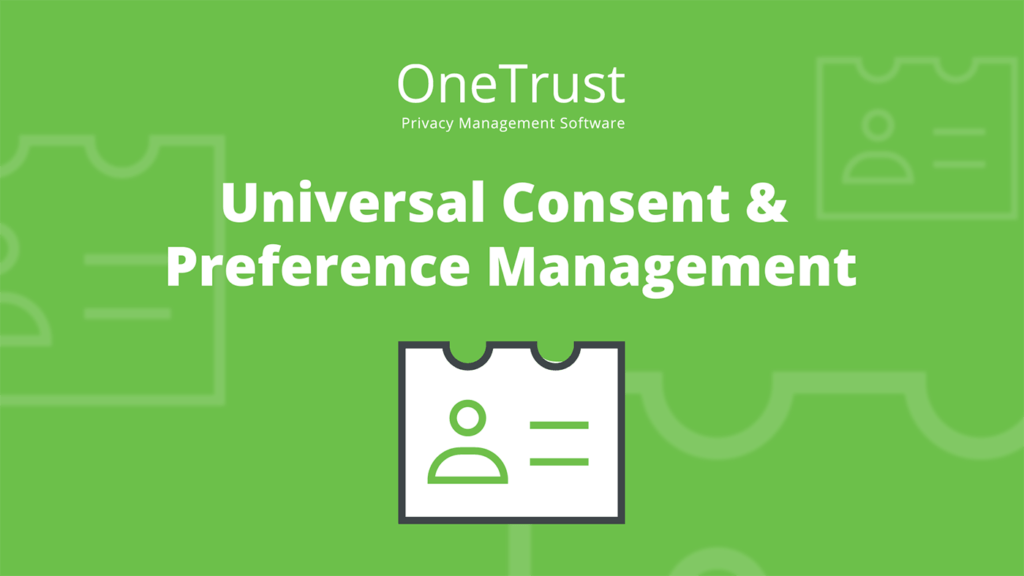
OneTrust also offers integrations with popular tools like WordPress and Salesforce and provides detailed analytics and reporting capabilities.
Pros:
- Comprehensive Features: OneTrust offers many features to help businesses manage their data privacy compliance, including consent management, data mapping, risk assessment, and incident response. It allows enterprises to address various data privacy requirements within a single platform.
- Customizable: OneTrust allows businesses to customize their consent banners and user interfaces, giving them control over the look and feel of their data privacy interfaces and user experience.
- Scalable: OneTrust is designed to be scalable, meaning it can grow with a business’s needs. It makes it a good option for companies expanding their operations and requiring a more comprehensive solution.
Cons:
- Cost: OneTrust is one of the more expensive consent management platforms, with pricing plans that may need to be revised for smaller businesses or startups.
- Complexity: While OneTrust offers comprehensive features, this can also make the platform quite complex to set up and use. Some users have reported that the platform can be challenging to navigate and requires significant training and support to get the most out of its capabilities.
- Customer support: Some users have reported challenges with OneTrust’s customer support, citing issues such as slow response times and difficulty getting issues resolved.
TrustArc
TrustArc is another top pick for consent management in 2023. TrustArc also includes several other features, such as data inventory, mapping, and risk assessments, making it a comprehensive privacy management platform.
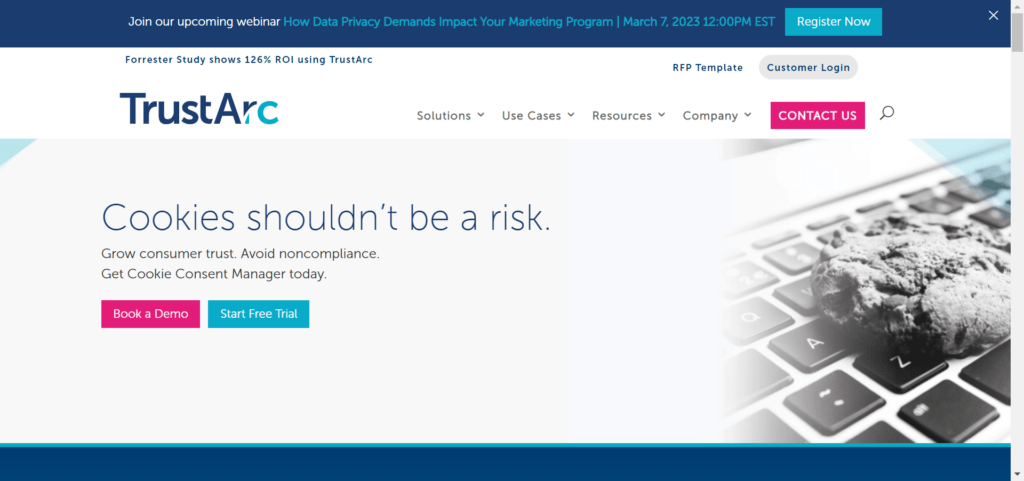
Pros:
- Customizable: TrustArc’s consent management platform allows businesses to customize their consent banners and user interfaces, which helps create a more consistent and on-brand user experience.
- Simple user interface: TrustArc’s platform is designed to be user-friendly and easy to navigate, making it a good option for businesses that may need dedicated data privacy teams or resources.
- Strong reporting capabilities: TrustArc provides businesses with robust reporting capabilities that track user consent and engagement, helping them stay on top of compliance requirements and manage their data privacy programs.
Cons:
- Limited features: TrustArc’s platform may have fewer features than other consent management platforms, which could be a drawback for businesses with more complex data privacy requirements.
- Cost: Like OneTrust, TrustArc’s pricing plans may be out of reach for smaller businesses or startups, making it more suitable for mid-sized to large enterprises.
- Limited customer support: Some users have reported challenges with TrustArc’s customer support, citing issues such as slow response times and difficulty getting issues resolved.
UserCentrics
As a consent management platform, UserCentrics provides a range of features to help businesses comply with data privacy regulations and manage user consent for their websites and mobile apps.
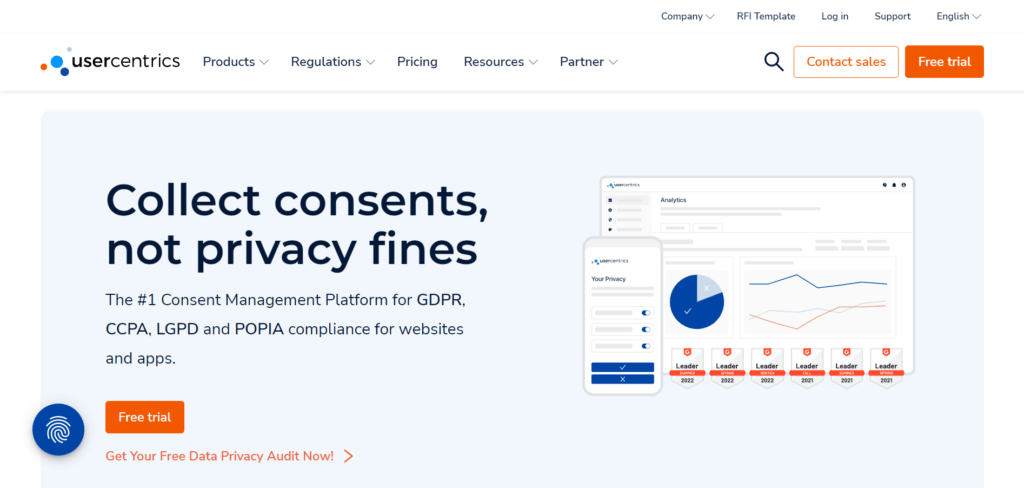
One of the critical features of UserCentrics is its ability to help businesses create and customize consent banners and dashboards that match their brand and provide users with clear and transparent information about how their data is being used.
The platform allows businesses to easily configure and customize consent options, such as opt-in and opt-out. It provides users with the ability to modify their preferences at any time.
UserCentrics also offers a range of integration options, enabling businesses to integrate the platform with popular website builders and third-party tools, such as CRM and analytics platforms.
This integration helps ensure that user consent is effectively managed across all areas of a business’s online presence, providing a streamlined and consistent user experience.
Pros:
- User-Friendly: UserCentrics offers a user-friendly interface that is easy to navigate, making it a good option for businesses without dedicated data privacy teams or resources.
- Customizable: The platform allows businesses to customize their consent banners and user interfaces, which helps create a more consistent and on-brand user experience.
- Integration: UserCentrics integrates with many third-party applications and platforms, including Google Analytics, WordPress, and Magento, which makes it a good option for businesses that rely on multiple tools to manage their digital presence.
Cons:
- Limited Features: UserCentrics may have fewer features than other consent management platforms, which could be a drawback for businesses with more complex data privacy requirements.
- Cost: UserCentrics may be cost-prohibitive for smaller businesses or startups, making them more suitable for mid-sized to large enterprises.
- Limited Customer Support: Some users have reported challenges with UserCentrics’ customer support, citing issues such as slow response times and difficulty getting issues resolved.
CookiePro
CookiePro is a popular consent management platform that offers a range of features for managing cookie consent and consent for other types of data processing.
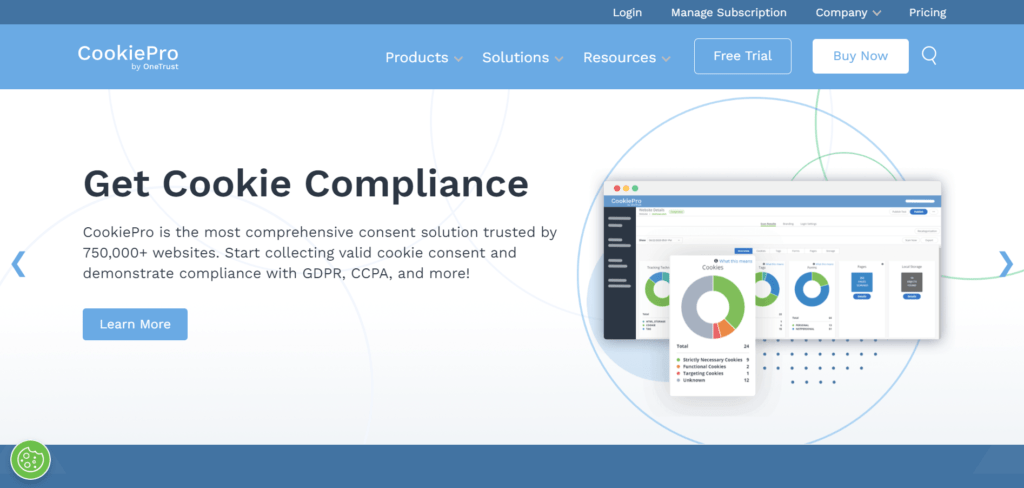
It includes customizable consent banners and preference centers, granular consent controls, and global data privacy regulations support. CookiePro has several other features, such as a cookie scanner and a data subject request portal.
Pros:
- User-Friendly Interface: CookiePro has an intuitive interface that makes it easy for users to navigate and customize their cookie banners and settings.
- Comprehensive Solution: CookiePro provides a complete solution for cookie compliance that includes a consent management platform, cookie scanner, and other tools to help ensure compliance.
- Automated Scanning: CookiePro automatically scans websites for cookies and other tracking technologies, making identifying and categorizing them easy.
- Detailed Reporting: CookiePro provides detailed reporting on consent, including the number of visitors who accept or reject cookies, the types of cookies collected, and other vital data points.
Cons:
- Setup Can Be Complex: While the user interface is intuitive, the initial design can be difficult, especially for users with limited technical knowledge.
- Limited Customer Support: CookiePro’s customer support can be limited, and users may have to rely on online resources and community forums for help.
- Integration Issues: Some users have reported problems integrating CookiePro with their website, which can lead to technical difficulties.
- Compliance Limitations: While CookiePro can help users comply with various privacy regulations, it is not a substitute for legal advice. Users may still need legal counsel to ensure full compliance with relevant laws.
Quantcast Choice
Quantcast Choice is a consent management platform emphasizing ease of use and customization. Quantcast Choice also includes detailed analytics and reporting capabilities and integrations with popular tools like Google Analytics and Adobe Experience Manager.
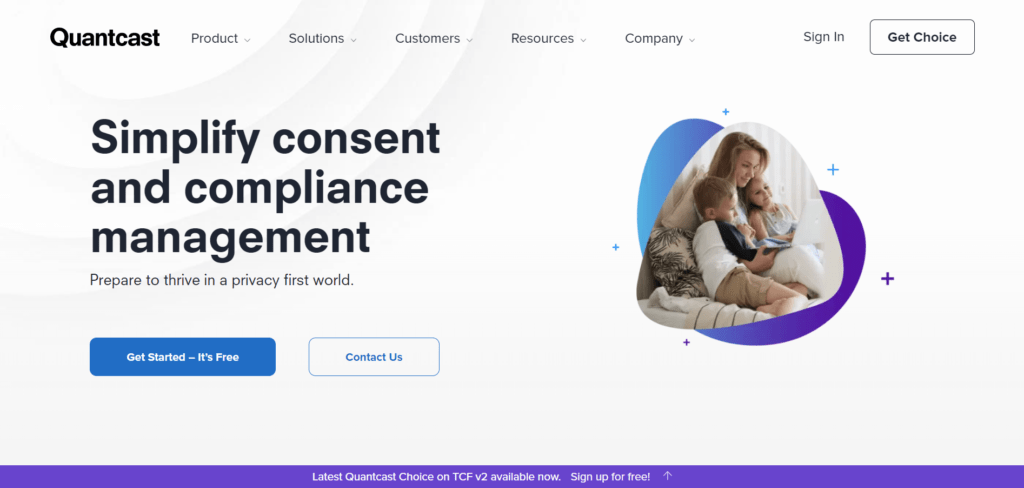
Pros:
- Ease of Use: Quantcast Choice is user-friendly and easy to install. It comes with pre-built templates and wizards that simplify creating and customizing a CMP for your website.
- High Compliance: Quantcast Choice is designed to comply with GDPR and ePrivacy regulations fully. It uses a granular consent approach that allows website owners to obtain user consent for specific purposes, such as advertising, analytics, and personalization.
- Transparent: The platform is fine, which means that it provides users with clear and concise information about the data that is collected, how it is used, and who it is shared with.
- Robust Reporting: Quantcast Choice has powerful reporting features that allow website owners to monitor user consent rates and make informed decisions about their data collection and processing activities.
Cons:
- Limited Customization: While Quantcast Choice is easy to use, it offers limited customization options. It may be a drawback for website owners who want to create a unique user experience for their visitors.
- Limited Support: The platform has limited support options, and users may need help to get help or support when needed.
- Limited Integrations: Quantcast Choice has limited integrations with other third-party tools, which may be a drawback for website owners who use multiple tools to manage their websites.
Osano
Osano is a comprehensive privacy management platform that includes a range of features for managing consent and other aspects of privacy management.
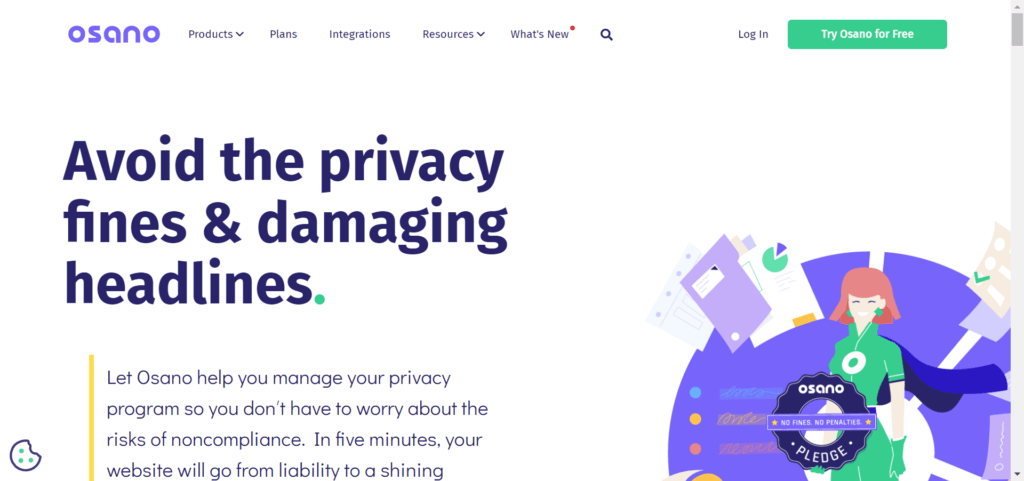
Its consent management features include customizable consent banners and preference centers, granular consent controls, and global data privacy regulations support. Osano also includes features such as data subject request management and risk assessments.
Pros:
- Automated: Osano Choice automates obtaining and managing consent, reducing the workload for compliance and legal teams.
- Transparent: Osano Choice provides transparency into how consent is obtained and managed, helping organizations demonstrate compliance with regulators and customers.
Cons:
- Limited Integration: Osano Choice needs more integration with other systems, which may require manual data entry or additional work to integrate with other tools.
- Limited Reporting: The platform provides basic reporting capabilities but may need to be more sufficient for organizations that need more detailed and comprehensive reporting.
- Limited Training Resources: The training resources available for Osano Choice may be limited, which could require additional training or support for new users.
Termly
Termly is a popular consent management platform that offers a range of features for managing consent and support for global data privacy regulations. It also includes several other features, such as a privacy policy generator and a cookie scanner.
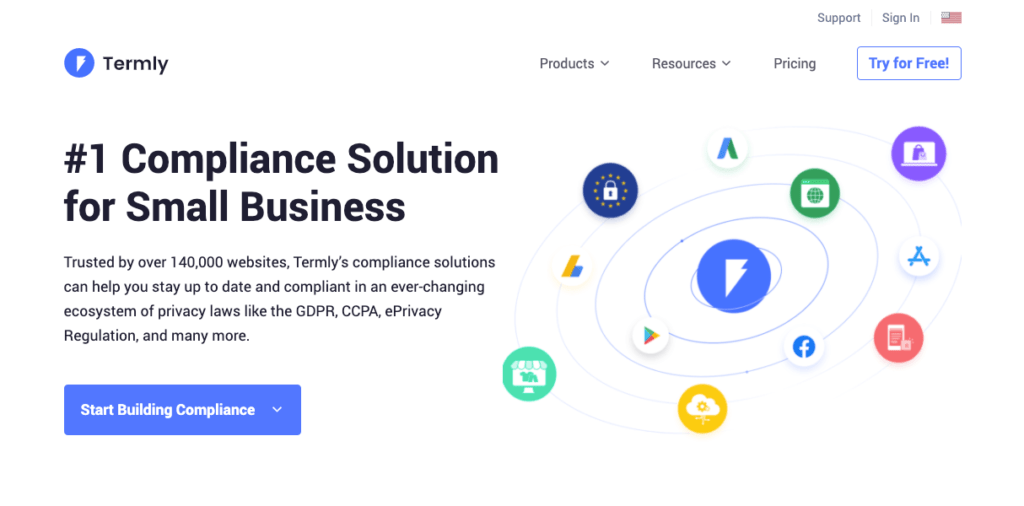
Pros:
- Easy to Use: Termly Choice has a simple and user-friendly interface that allows organizations to set up and manage their consent management processes.
- Affordable: Termly Choice is relatively inexpensive, making it a good choice for smaller organizations or those with limited budgets.
- Comprehensive: The platform covers a wide range of privacy laws, ensuring that organizations can comply with multiple regulations in one place.
Cons:
- Limited Features: Termly Choice may have fewer features than other consent management platforms on the market, which could limit its usefulness for larger organizations or those with complex requirements.
- Limited Integrations: Termly Choice has little integration with other systems, which may require manual data entry or additional work to integrate with other tools.
Clym
Clym is a consent management platform emphasizing ease of use and integration with popular tools like WordPress and Shopify.
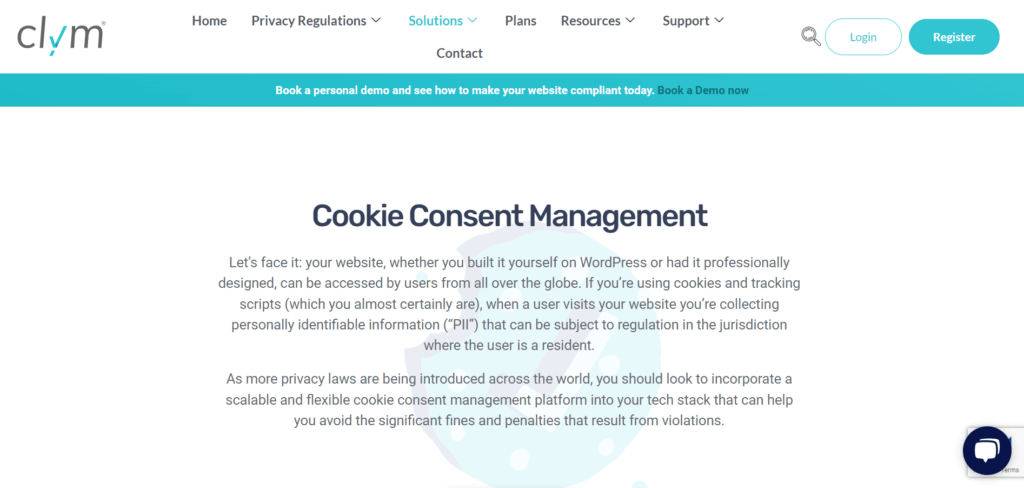
Clym also includes data subject request management and detailed analytics and reporting capabilities.
Pros:
- Customizable: The highly customizable platform allows organizations to tailor their consent management processes to their specific needs and requirements.
- Robust Features: Clym Choice includes a range of parts, such as data subject access request management, that can be helpful for organizations looking for a more comprehensive privacy management solution.
Cons:
- Cost: Clym Choice can be relatively expensive for smaller organizations, especially compared to other consent management tools on the market.
- Limited Support: Clym Choice’s customer support can be slow to respond, which is frustrating for organizations needing timely assistance.
SECURITI.ai
SECURITI.ai is a comprehensive privacy management platform that includes a range of features for managing consent and other aspects of privacy management. It also includes data subject request management, risk assessments, and incident response management.
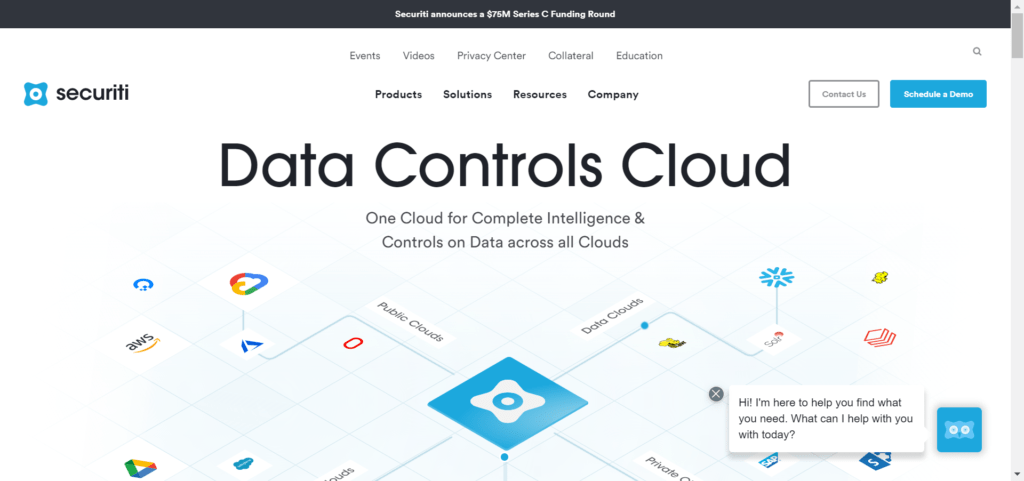
Pros:
- Automated: The platform automates obtaining and managing consent, reducing the workload for compliance and legal teams.
- Advanced Features: SECURITI.ai’s Consent Management module includes advanced features, such as automatic language translation and granular consent management options.
Cons:
- Complexity: The platform may be too complex for smaller organizations with less complicated consent management needs and could require more time and effort to set up and use.
- Limited Integrations: SECURITI.ai has limited integration with other systems, which may require manual data entry or additional work to integrate with other tools.
CookieYes
CookieYes is a popular consent management platform that offers a range of features for managing cookie consent and consent for other types of data processing. It has several other features, such as a cookie scanner and a data subject request portal.
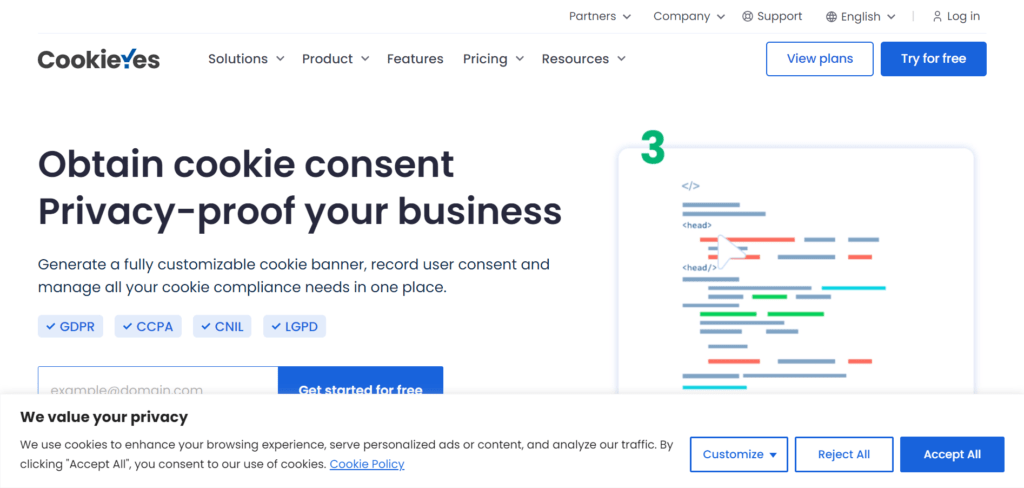
Pros:
- Customizable Consent Banner: CookieYes provides a customizable consent banner that can be tailored to match the look and feel of your website. It makes it easy for users to understand what they consent to and can help improve user experience.
- Simple Integration: The platform is easy to integrate and can be set up on your website in just a few minutes without requiring technical knowledge.
- Multiple Languages Support: CookieYes supports various languages, which is helpful if your website caters to an international audience.
- Advanced Consent Management: CookieYes offers advanced consent management features such as granular consent, automatic blocking of cookies, and a preference center that allows users to modify their consent choices.
Cons:
- Limited Free Plan: The free program is limited in terms of the number of page views and domains it supports. You may need to upgrade to a paid plan if your website has high traffic.
- No Support for Do Not Track Requests: The platform doesn’t support the “Do Not Track” request, which some users may prefer to use to opt out of tracking.
- Privacy Policy and Terms of Service Requirement: To use CookieYes, you must agree to their privacy policy and terms of service. It may be an issue if you have strict legal requirements around privacy and data handling.
Consider These Points to Ensure your CMP Operates as Expected:
No doubt, adopting a CMP is a good strategy for your marketing campaigns. But consent management platforms must be configured correctly to receive consent signals. Here are five ways to ensure compliance:
Review your Ad Tech Partners – Review about your ad tech partners to understand how they manage and conduct data privacy practices.
Data Collection – Regularly conduct data testing to identify unconsented data collection of tags, pixels, and network requests.
Audit Regularly – Perform regular audits to check how your IBA acts on opt-in/opt-out signals that helps to prevent noncompliant retargeting.
Understanding Consumer’s Point of View – Thoroughly assess your strategy from consumer’s point of view.
Final Thoughts
As privacy regulations evolve, having a reliable and effective consent management platform is becoming increasingly crucial for website owners.
With so many options available, choosing the right platform for your business can take time.
From OneTrust to TrustArc to CookieYes and more, these platforms offer a variety of features and capabilities to help you manage user consent and comply with privacy regulations.
Whether you’re looking for advanced customization, seamless integration, or detailed reporting, a platform on this list can meet your needs.
Evaluating your options requires considering factors such as ease of use, cost, and the specific features and capabilities you need.
Ultimately, your business’s right consent management platform will depend on your unique requirements and goals.
AdPushup is an ad revenue optimization platform that helps web publishers increase their ad revenue by using machine-learning based ad layout optimization, header bidding, ad mediation, adblock recovery, innovative ad formats, and AMP. Sign up here for more information on consent management platforms and its use for publishers.
Consent Management Platforms FAQ
GDPR actually requires consent to be recorded for every vendor with whom user data will be shared. That list can run into hundreds, so most consent management platforms have instead decided to club them into broad categories.
Users typically have the option to dive deeper and opt out on a micro-level, but it’s difficult to say how many top CMP vendors that follow IAB consent framework are actually GDPR-compliant if you go by the book.
CMPs vary vastly in their capabilities and offerings. Google’s attempt at creating a consent management framework, Funding Choices, is free to use for Google publishers but lacks many essential features, and is limited to listing 12 vendors.
On the other end you have enterprise solutions that can cost lot but provide features such as multi-site implementation, privacy control center for users, and white-label consent pop-ups.
Here is a list of 10 best CMPs for publishers to use in 2023:
a) OneTrust
b) TrustArc
c) UserCentrics
d) CookiePro
e) Quantcast Choice
f) Osano
g) Termly
h) Clym
i) SECURITI.ai
j) CookieYes

Shubham is a digital marketer with rich experience working in the advertisement technology industry. He has vast experience in the programmatic industry, driving business strategy and scaling functions including but not limited to growth and marketing, Operations, process optimization, and Sales.




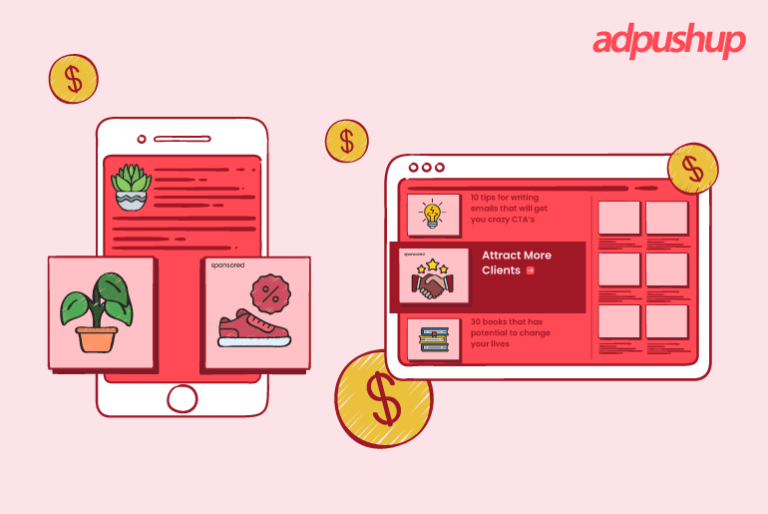
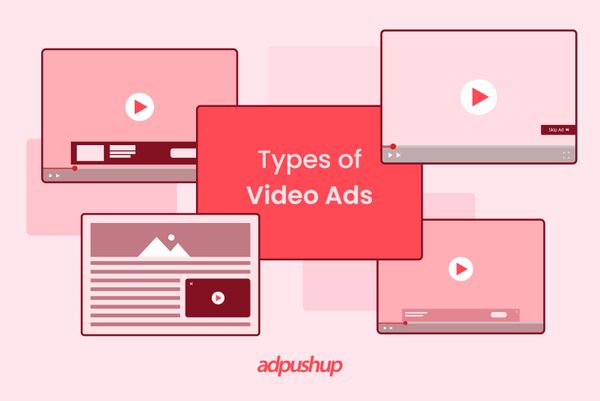

1 Comment
there is rule in EU that says you must take consent from your customers before collecting their personal data and to fulfill this thing some companies provide the consent management like cookie consent etc.